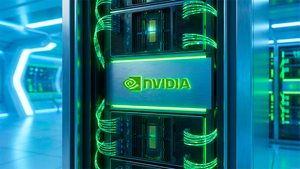Financial News
Wedbush Boosts Tower Semiconductor Price Target to $85 Amidst Soaring AI Demand and Silicon Photonics Growth

New York, NY – November 11, 2025 – In a significant vote of confidence for the semiconductor industry, Wedbush Securities has dramatically increased its price target for Tower Semiconductor (NASDAQ: TSEM) to an impressive $85, up from its previous $60. This optimistic revision, issued on October 27, 2025, reflects a bullish outlook driven by Tower's robust performance in analog solutions, strategic partnerships, and a pivotal role in the burgeoning Artificial Intelligence (AI) data center and Silicon Photonics (SiPh) markets. The move underscores a growing market recognition of Tower Semiconductor's critical position in supplying the foundational technologies powering the next wave of AI innovation.
The substantial price target hike comes as the global demand for high-performance analog and mixed-signal semiconductors continues its upward trajectory, particularly fueled by the insatiable appetite for AI processing capabilities. Wedbush's analysis points to Tower Semiconductor's strong execution and strategic focus on high-growth segments as key differentiators, positioning the company for sustained expansion well into the latter half of the decade. Investors are keenly watching the company's trajectory, especially in light of its recent positive financial results and promising forward guidance, which collectively paint a picture of a semiconductor powerhouse on the rise.
Tower's Technical Prowess Propels Growth in AI and Beyond
Wedbush's confidence in Tower Semiconductor stems from a deep dive into the company's technical strengths and market positioning. A core driver of this optimistic outlook is Tower's exceptional performance and leadership in RF Infrastructure and Silicon Photonics (SiPh) technologies. The firm specifically highlighted a "clear line of sight" into strong SiPh trends extending into 2027, indicating a sustained period of growth. Silicon Photonics is a critical technology for high-speed data transmission in data centers, which are the backbone of modern AI computations and cloud services. As AI models become larger and more complex, the demand for faster, more efficient interconnects skyrockets, making SiPh an indispensable component.
Tower Semiconductor's approach differs from many traditional chip manufacturers by focusing on specialized foundry services for analog, mixed-signal, RF, and power management ICs. This specialization allows them to cater to niche, high-value markets where performance and reliability are paramount. Their expertise in SOI (Silicon-on-Insulator) technology has garnered industry recognition, further solidifying their reputation as a trusted supplier. SOI wafers offer superior performance characteristics for high-frequency and low-power applications, which are essential for advanced RF and AI-related chip designs. This technological edge provides a significant competitive advantage over general-purpose foundries, enabling Tower to capture a substantial share of the growing analog and mixed-signal market.
Initial reactions from the AI research community and industry experts have been largely positive, recognizing the foundational role that companies like Tower Semiconductor play in enabling AI advancements. While much attention often goes to the AI model developers or GPU manufacturers, the underlying infrastructure, including specialized analog and RF chips, is equally vital. Tower's ability to deliver high-performance components for AI data centers and RF mobile recovery positions it as a silent enabler of the AI revolution, providing the critical building blocks for advanced AI systems.
Competitive Implications and Market Positioning in the AI Era
This development has significant competitive implications for major AI labs, tech giants, and startups alike. Companies heavily invested in AI infrastructure, such as cloud service providers and AI hardware developers, stand to benefit from Tower Semiconductor's robust and technologically advanced offerings. As the demand for custom AI accelerators and high-speed data transfer solutions escalates, Tower's foundry services become increasingly attractive for companies looking to design specialized chips without the prohibitive costs of building their own fabrication plants.
From a competitive standpoint, Tower Semiconductor's strategic focus on high-value analog semiconductor solutions and its leadership in SiPh technology provide a strong market position. While giants like TSMC (NYSE: TSM) and Samsung (KRX: 005930) dominate the leading-edge digital logic foundry space, Tower carves out its niche by excelling in areas critical for power efficiency, RF performance, and mixed-signal integration – all crucial for AI edge devices, specialized AI accelerators, and data center interconnects. This specialization reduces direct competition with the largest foundries and allows Tower to command better margins in its segments.
The potential disruption to existing products or services comes from the continuous evolution of AI hardware. As AI applications demand more efficient and powerful chips, companies that can provide specialized foundry services, like Tower Semiconductor, will gain strategic advantages. Their ability to innovate in areas like SiPh directly impacts the scalability and performance of AI data centers, potentially leading to the obsolescence of less efficient copper-based interconnect solutions. This strategic advantage allows Tower to deepen partnerships with key players in the AI ecosystem, solidifying its role as an indispensable partner in the AI era.
Wider Significance in the Broader AI Landscape
Tower Semiconductor's rising prominence, highlighted by Wedbush's optimistic outlook, fits seamlessly into the broader AI landscape and current technological trends. The shift towards more distributed AI, edge AI, and increasingly powerful AI data centers necessitates advancements in diverse semiconductor technologies beyond just CPUs and GPUs. Analog, mixed-signal, and RF components are crucial for power management, sensor integration, high-speed communication, and efficient data conversion – all essential for real-world AI applications. Tower's focus on these areas directly addresses fundamental requirements for scaling AI infrastructure.
The impacts of Tower's strong performance extend to the overall efficiency and capability of AI systems. For instance, enhanced SiPh solutions enable faster data transfer within and between data centers, directly translating to quicker training times for large AI models and more responsive AI inference services. This acceleration is vital for driving progress in fields like autonomous vehicles, natural language processing, and advanced robotics. Potential concerns, though not directly tied to Tower's specific technology, revolve around the broader supply chain resilience and geopolitical stability, which can affect any semiconductor manufacturer. However, Tower's diverse customer base and foundry model offer some insulation against single-point failures.
Comparing this to previous AI milestones, such as the initial breakthroughs in deep learning, Tower's contribution represents the essential underlying hardware enablement. While the software and algorithmic advancements capture headlines, the physical infrastructure that makes these algorithms runnable and scalable is equally critical. Tower's specialization in foundational components ensures that the AI industry has the necessary building blocks to continue its rapid evolution, much like how specialized memory or networking chips were crucial for the internet's expansion.
Exploring Future Developments and Applications
Looking ahead, Tower Semiconductor is poised for continued growth fueled by several expected near-term and long-term developments. The ongoing expansion of AI data centers and the increasing adoption of AI across various industries will sustain the demand for their specialized analog and mixed-signal solutions. Experts predict a continued surge in Silicon Photonics adoption as data center bandwidth requirements escalate, positioning Tower at the forefront of this critical technological shift. Furthermore, the recovery in the RF Mobile market, coupled with the rollout of 5G and future 6G networks, will drive demand for their RF infrastructure components, many of which are essential for AI-powered mobile devices and edge computing.
Potential applications and use cases on the horizon include more sophisticated AI at the edge, requiring highly integrated and power-efficient chips for devices ranging from smart sensors to autonomous drones. Tower's expertise in power management and RF could play a crucial role here. Additionally, their foundry services could become instrumental for startups developing highly specialized AI accelerators for specific industry verticals, offering them a path to market without massive capital expenditure on fabs.
Challenges that need to be addressed include the continuous need for R&D investment to stay ahead of rapidly evolving technological demands, managing geopolitical risks in the semiconductor supply chain, and attracting top talent. However, Wedbush's upward revisions in earnings per share (EPS) estimates—lifting Q4 2026 EPS to $0.88 and FY2026 earnings estimate to $2.86 per share—signal strong confidence in the company's ability to navigate these challenges and capitalize on future opportunities. Experts predict that Tower Semiconductor's strategic focus on high-growth, high-margin analog and SiPh segments will allow it to continue outperforming the broader semiconductor market.
A Comprehensive Wrap-Up: Tower Semiconductor's Enduring Significance
In summary, Wedbush's significant price target boost for Tower Semiconductor (NASDAQ: TSEM) to $85 reflects a strong belief in the company's foundational role in the accelerating AI revolution. Key takeaways include Tower's robust performance in analog solutions, its strategic positioning in Silicon Photonics and AI data center infrastructure, and its ability to secure major partnerships. The company's recent strong financial results, including outstanding Q2 2025 earnings and promising Q3 guidance, underpin this optimistic outlook.
This development underscores Tower Semiconductor's growing significance in AI history. While often operating behind the scenes, its specialized foundry services provide the critical analog, mixed-signal, and RF components that are indispensable for enabling the high-performance, power-efficient AI systems of today and tomorrow. Its leadership in SiPh, in particular, positions it as a key enabler for the future of AI data centers.
In the long term, Tower Semiconductor is set to benefit from the relentless demand for AI processing power and high-speed data transfer. Its focus on niche, high-value markets, combined with technological prowess in areas like SOI, provides a durable competitive advantage. What to watch for in the coming weeks and months will be the company's Q3 2025 earnings call (scheduled for November 10, 2025) and its fourth-quarter guidance, which will provide further insights into its growth trajectory and market outlook. Continued progress in securing new partnerships and expanding its SiPh offerings will also be crucial indicators of sustained success.
This content is intended for informational purposes only and represents analysis of current AI developments.
TokenRing AI delivers enterprise-grade solutions for multi-agent AI workflow orchestration, AI-powered development tools, and seamless remote collaboration platforms.
For more information, visit https://www.tokenring.ai/.
More News
View More



Recent Quotes
View MoreQuotes delayed at least 20 minutes.
By accessing this page, you agree to the Privacy Policy and Terms Of Service.



